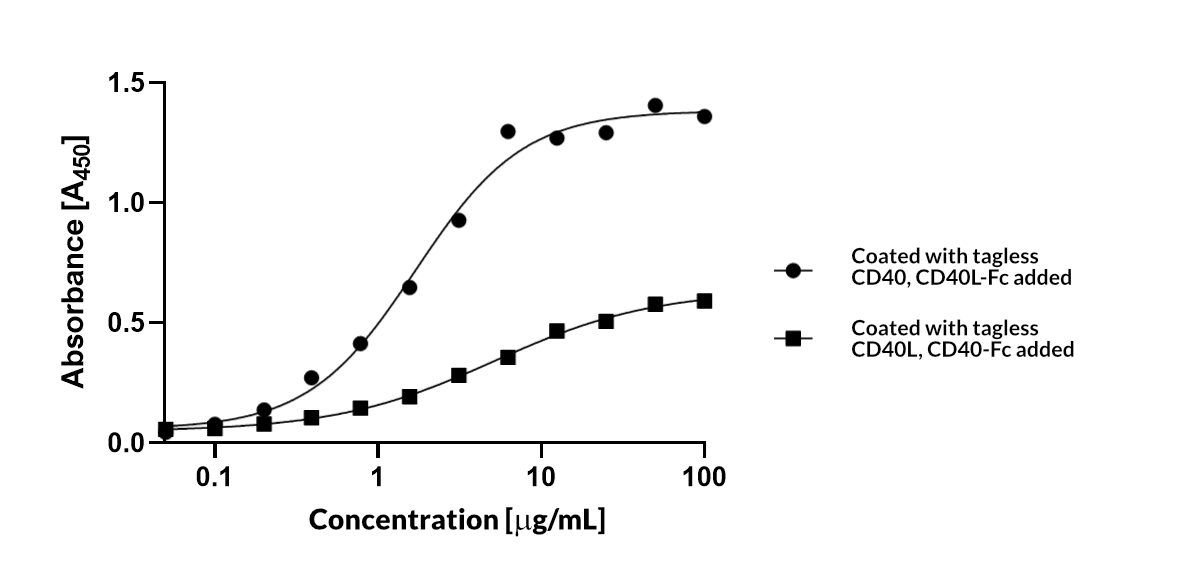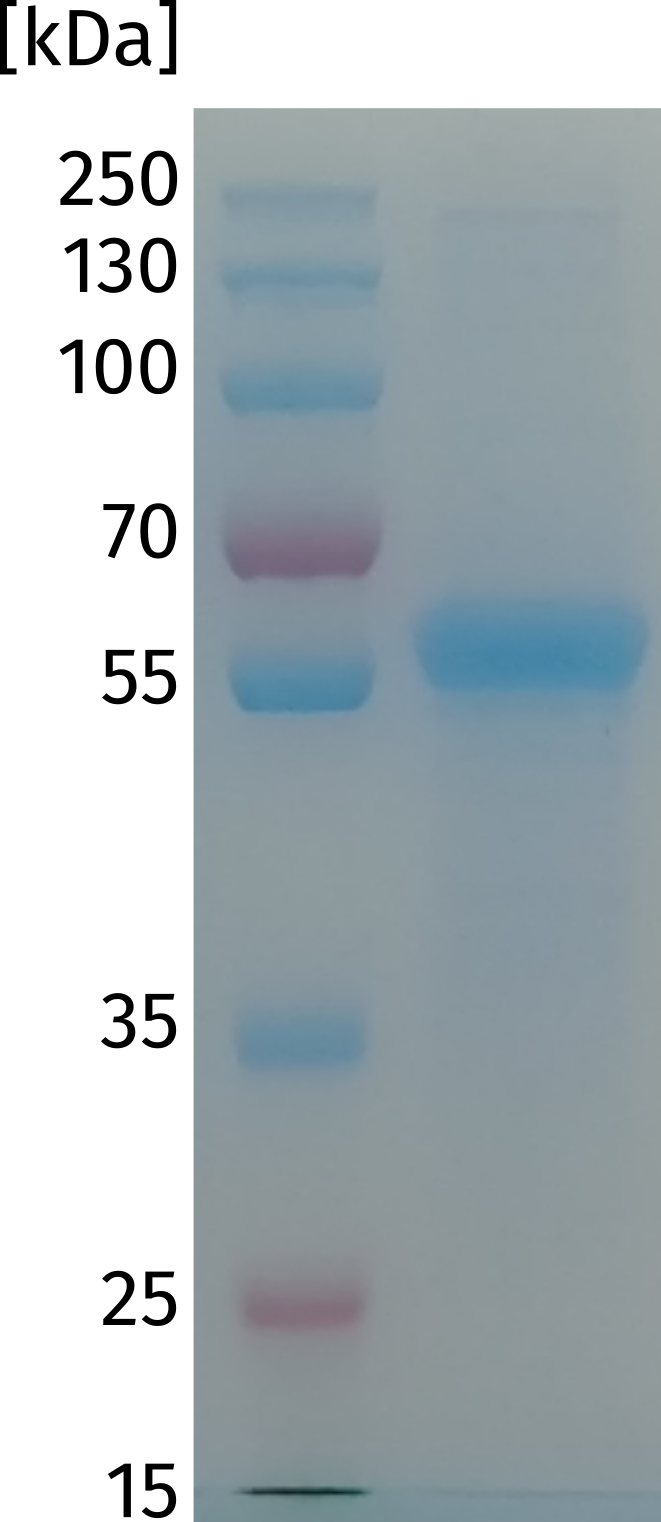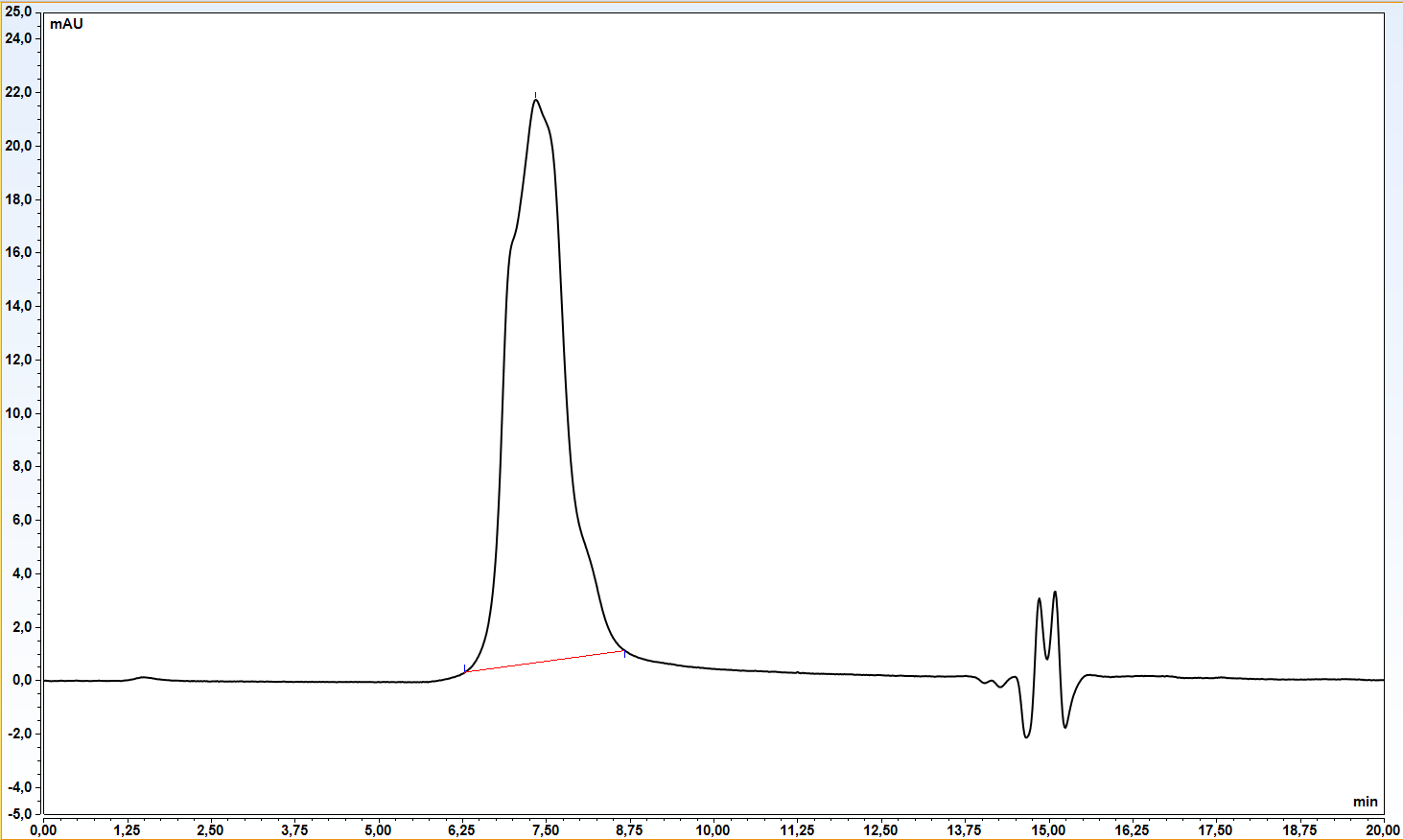| Alternative names | CD154 |
| Known ligands | CD40 |
| Origin | Homo sapiens |
| Accession number | P29965 |




CD40 (or CD154) ligand, a type II transmembrane protein, was originally considered restricted to activated T lymphocytes, functioning as a mediator of T cell-dependent B cell activation, proliferation, and differentiation (1). The spectrum of CD154 expression and function has broadened considerably establishing new roles as a central mediator of immunity and inflammation for this member of the tumor necrosis factor (TNF) gene superfamily. CD40L modulates physiologic processes, such as T cell-mediated effector functions and general immune responses required for appropriate host defense, but also triggers the expression of pro-inflammatory mediators, such as cytokines, adhesion molecules, and matrix degrading activities, all of which are associated with the pathogenesis of chronic inflammatory diseases, e.g., autoimmune disorders, arthritis, atherosclerosis, and cancer (2). The importance of CD40–CD40L interactions in vivo has been recently demonstrated in autoimmune diseases such as collagen-induced arthritis, acute and chronic graft-versushost disease, and lupus nephritis where treatment of experimental animals with anti-gp39 antibodies markedly prevented disease expression. In addition, this receptor/ligand interaction is, in the presence of IL-4
as a coactivation signal, thought to play a key role in the switching of B cells to an IgE phenotype, hence implicating CD40 in allergy (3).
- Fries K. et al. CD40 Exproession by human fibroblasts. Clinical Immunology and Immunopathology. 1995, Oct, 77(1):42:51
- Schonbeck U. et al. CD154 (CD40 Ligand). The International Journal of Biochemistry & Cell Biology. 2000 Jul 1, 32(7):687-693
- Ohkawara Y. et al. CD40 expression by human peripheral blood eosinophils. The Journal of Clinical Investigation. 1996, 97(7):1761-1766
